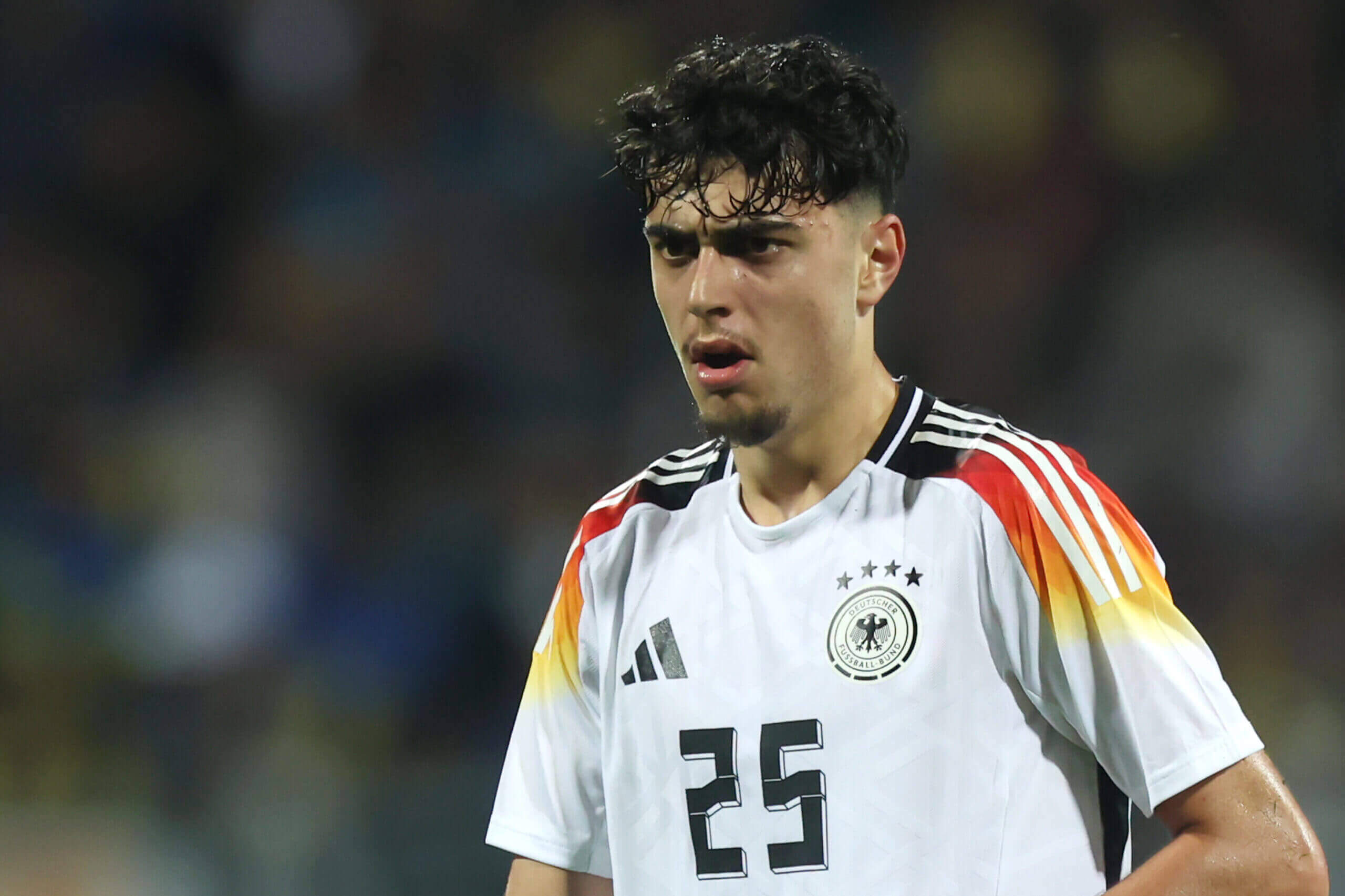Spare a thought for Aleksandar Pavlovic.
The Bayern Munich midfielder, 20, left the German squad this week after suffering another bout of tonsillitis. He has been replaced by Emre Can.
“Naturally difficult” is how Julian Nagelsmann described the decision to release Pavlovic. “The tonsillitis is so serious that he won’t be fit to play any time soon.”
It is terrible luck. Germany’s opening match against Scotland is being played at Bayern’s Allianz stadium in Munich, where Pavlovic was born, and he has become enormously popular in Bavaria. Home tournaments seldom align with players’ careers, and it’s even rarer for them to pass through a hometown.

GO DEEPER
Pavlovic is the homegrown Bayern star bucking trends – and giving them hope
Germany’s three group games occur across nine days. Even if Pavlovic was to recover, it’s unlikely that he would be fit enough to take part. With treatment, the body takes around six days to fight off a tonsillitis infection. Given their recent history at tournaments — which includes group stage elimination at the last two World Cups, and a bad last-16 loss to England in the 2020 European Championship — Germany cannot presume to be taking part in the knockout rounds and simply wait for Pavlovic to recover.
Not that he would have been a starter. He was the youngest member of Nagelsmann’s squad, but his role was as backup for Toni Kroos. Still, it would have been hard for Nagelsmann to take away. Ultimately, he had no choice — especially given how uncertain recovery periods can be with tonsillitis.
How to follow Euro 2024 on The Athletic…
The tonsils are lymph nodes at the top of the mouth and back of the throat. They protect the body’s respiratory tracts by filtering out bacteria and germs that cause infections. Tonsillitis occurs when the tonsils themselves are infected. They become inflamed and painful. Recovery can be an imprecise process, especially for athletes.
“It really depends on the aetiology (cause),” a club doctor from a Europa League Conference team tells The Athletic. “Is it viral? is it bacterial? Did the player have a fever and for how long? It depends on age, too, and whether an antibiotic was needed as part of treatment.”
According to information provided to The Athletic by ENT UK, the professional body representing Ear, Nose and Throat surgery in the United Kingdom, around two-thirds of infections are viral and cannot be treated with antibiotics.

Aleksandar Pavlovic has left the Germany squad (Alexander Hassenstein/Getty Images)
Christopher Pepper, a consultant paediatric ENT surgeon, says that while most people will encounter tonsillitis at some point in their lives, not everybody experiences it in the same way.
“For a smaller number of people, the infections can be more severe and recurrent in nature,” he tells The Athletic. “There is usually no clear reason why some people suffer more than others. There is a genetic component to it — although it’s not a genetic cause — as some families have several individuals who suffer from tonsillitis, while for some families it is absent.”
For some people, the best option is usually a tonsillectomy — the removal of the tonsils. “That decision is based mainly on the number and frequency of infections over the months or years, and also the severity of each infection,” Pepper says. “This determines the impact on the person’s quality of life — for instance, how much school or work they are missing.”
According to ENT UK’s guidance, a patient in the UK would have to suffer seven episodes in a year, five episodes a year over two years, or three episodes a year for three years to be offered an NHS tonsillectomy.
Research conducted by the National Institute for Health & Care Research said that roughly 12 per cent of the population of Great Britain suffers from recurrent tonsillitis, defined as being regular enough to have “significant impacts on work, education, family and social life”.
Pavlovic might have avoided missing out on the Euros by having his tonsils removed after an infection in March. However, it was decided to delay the operation until the end of the season so he could take part in Bayern’s Champions League campaign. As the team’s run in the competition continued, the window for Pavlovic to have his tonsils out — without risking his participation — in Euro 2024 narrowed.

GO DEEPER
Germany Euro 2024 team guide: Wirtz and Musiala provide spark but defence is a concern
“After surgery, a player could return to play in around two or three weeks, but it’s really more three than two,” says the club doctor.
And that just does not take into consideration getting back to form and the ability to compete at an international or elite club level. Modern football’s packed calendar does not offer much leeway in that regard.
It is not yet clear whether Pavlovic will now have his tonsils removed. Bayern declined to respond when asked by The Athletic. Surgery can come with risks, but, says Pepper, a tonsillectomy does not weaken the immune system or leave the body vulnerable in other areas.
“There is no strong evidence that tonsil removal places someone at increased risk of problems or infections later in life. The main risks that we discuss are related to the recovery period after surgery, with rarely any issues beyond that.”
Pavlovic is the great midfield prospect of his generation at Bayern. In time, he will likely assume as much importance to Germany. On the road to the 2026 World Cup and beyond, hopefully his luck improves.

GO DEEPER
Euro 2024 Group A guide: Germany’s narrow No 10s, resolute Hungary and Scotland’s set pieces
(Top photo: Aleksandar Pavlovic by Alex Grimm via Getty Images)
